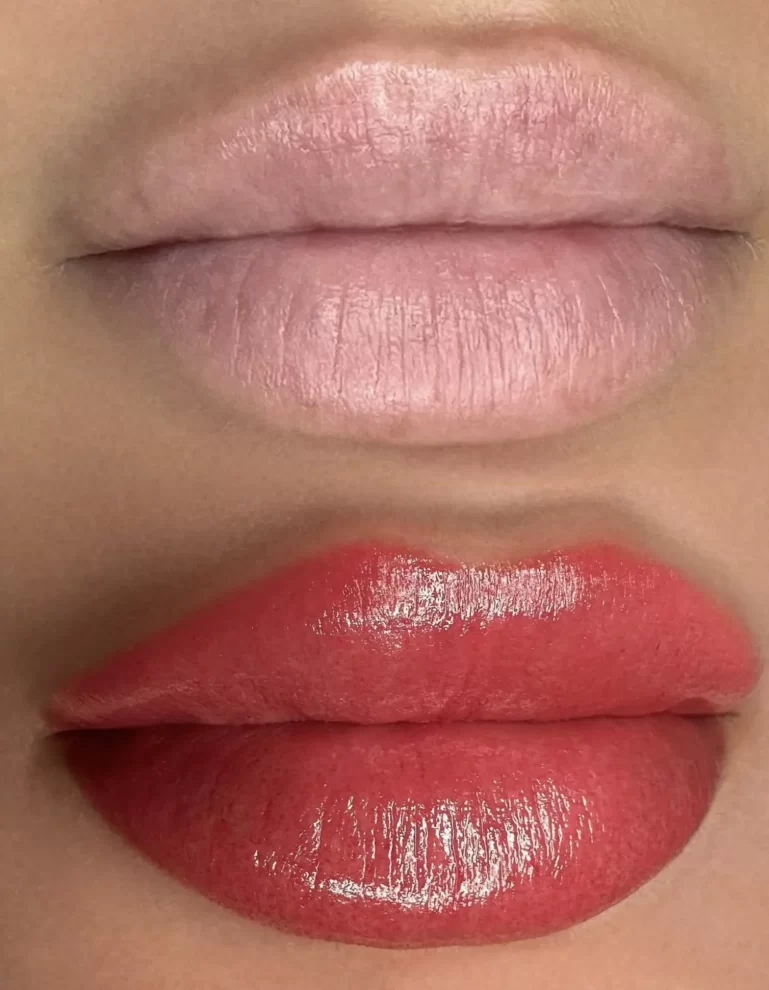
Getting a lip tattoo is a great way to enhance your natural beauty but the healing process requires attention—especially when it comes to sleep. How you sleep after a lip tattoo can make a big difference on the final result. This guide will go through everything you need to know on how to sleep comfortably and safely after your lip tattoo.
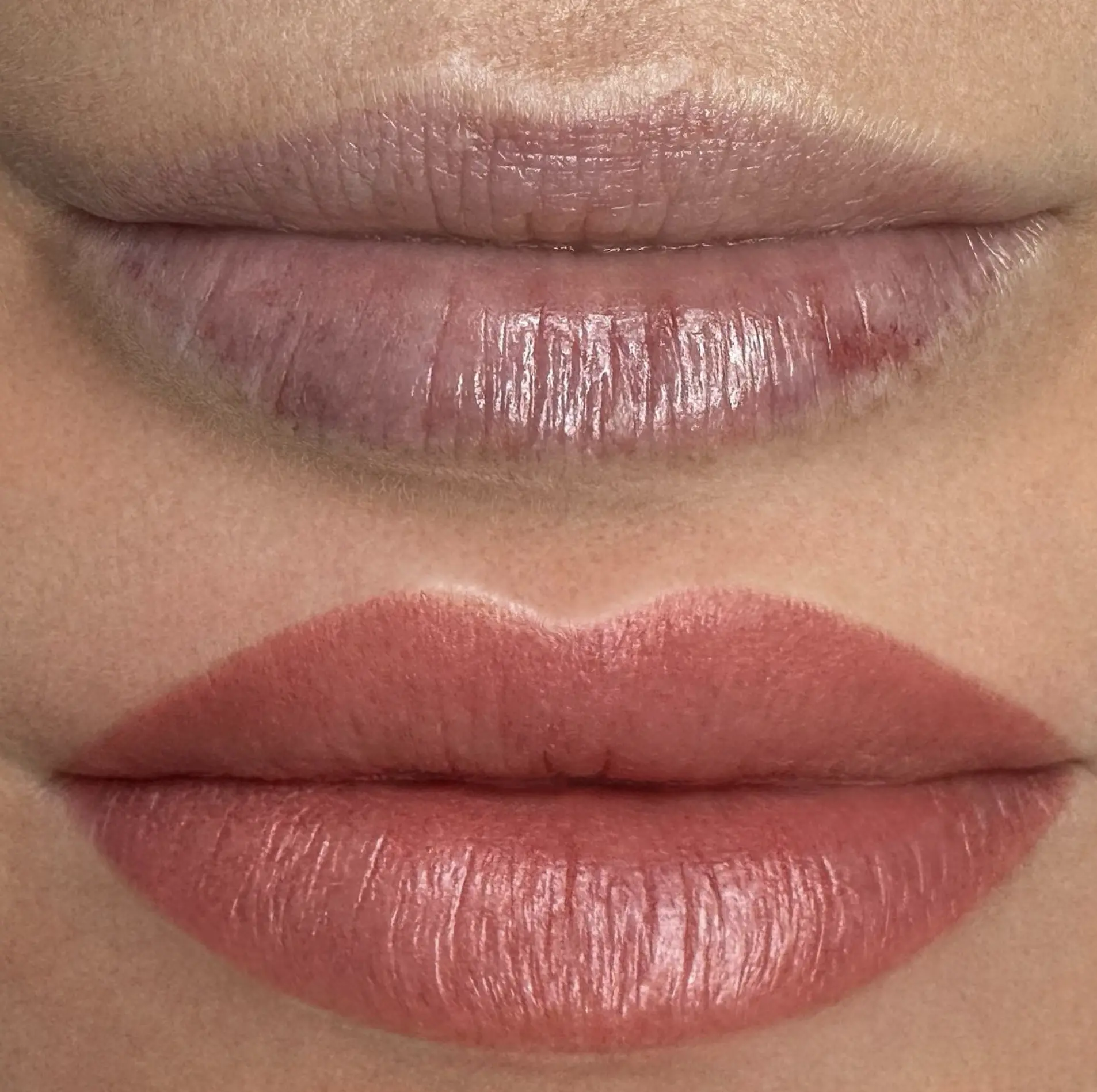
Sleeping Properly After a Lip Tattoo Matters
During the healing process your lips are more sensitive and the tattooed area is prone to scabbing, swelling, pigment loss and infection. Sleeping in a way that protects your lips helps prevent disruption to the ink, reduces irritation and supports proper healing. Bad sleeping habits can cause scabbing to peel too early or cause pigment loss and affect the overall appearance of your new lip colour.
Best Practices
When it comes to sleeping after a lip tattoo there are several things to do to ensure your lips heal properly. These tips will help prevent complications like pigment loss, irritation from bad diet, or complications from acidic foods or sun exposure. Following the right aftercare will also help your lip permanent makeup achieve the vibrant and natural colour you expect from cosmetic tattooing.
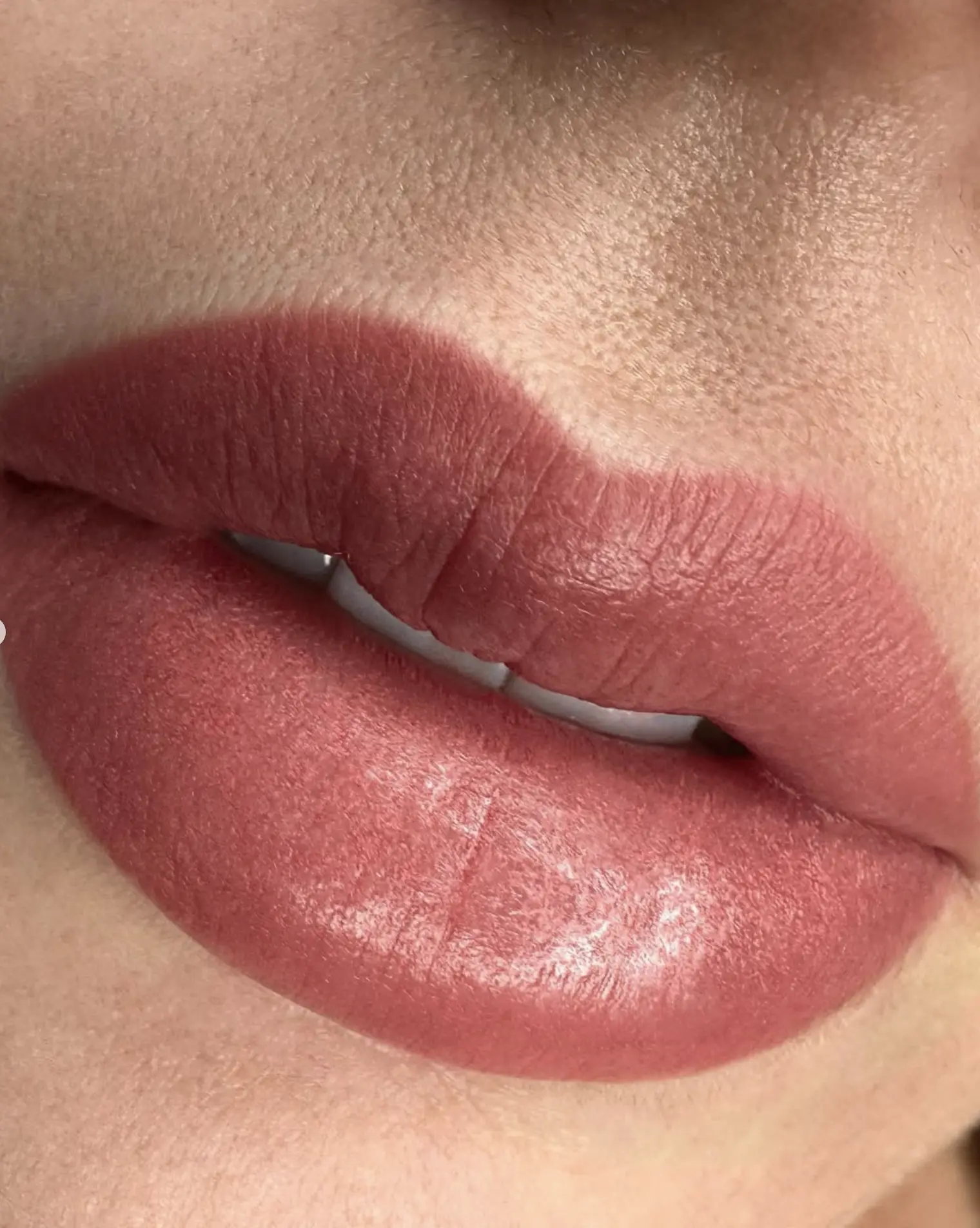
Sleep on Your Back
One of the most important thing to do when sleeping after a lip tattoo is to sleep on your back. Sleeping on your back prevents pressure on your freshly tattooed lips which is important for maintaining the natural lip colour and preventing irritation. This also helps to prevent pigment migration due to friction from side sleeping. The healing time for a lip tattoo is sensitive and sleeping on your back for the first few days post procedure ensures you protect your investment in cosmetic tattooing. For those who can’t sleep on their back, elevating your head slightly with an extra pillow can also help reduce swelling and fluid buildup especially from excess lymph fluid which is common during the early healing stages.
New Pillowcase
Using a new pillowcase every night is important when sleeping after a lip tattoo. Dirty pillowcases can carry bacteria, dirt and oils that can introduce infection to the sensitive lip skin. A new pillowcase also helps prevent the transfer of oils from oily foods or hot drinks that can affect the healing process of your lip permanent makeup. You can also use a soft cotton pillowcase to reduce friction as this will minimize irritation to the sensitive area and prevent pigment loss from dry skin. A new pillowcase will also prevent drying of the healing tissue or risk of infection from touching your lips which can affect the retention of pigment in your lip blush tattoo.
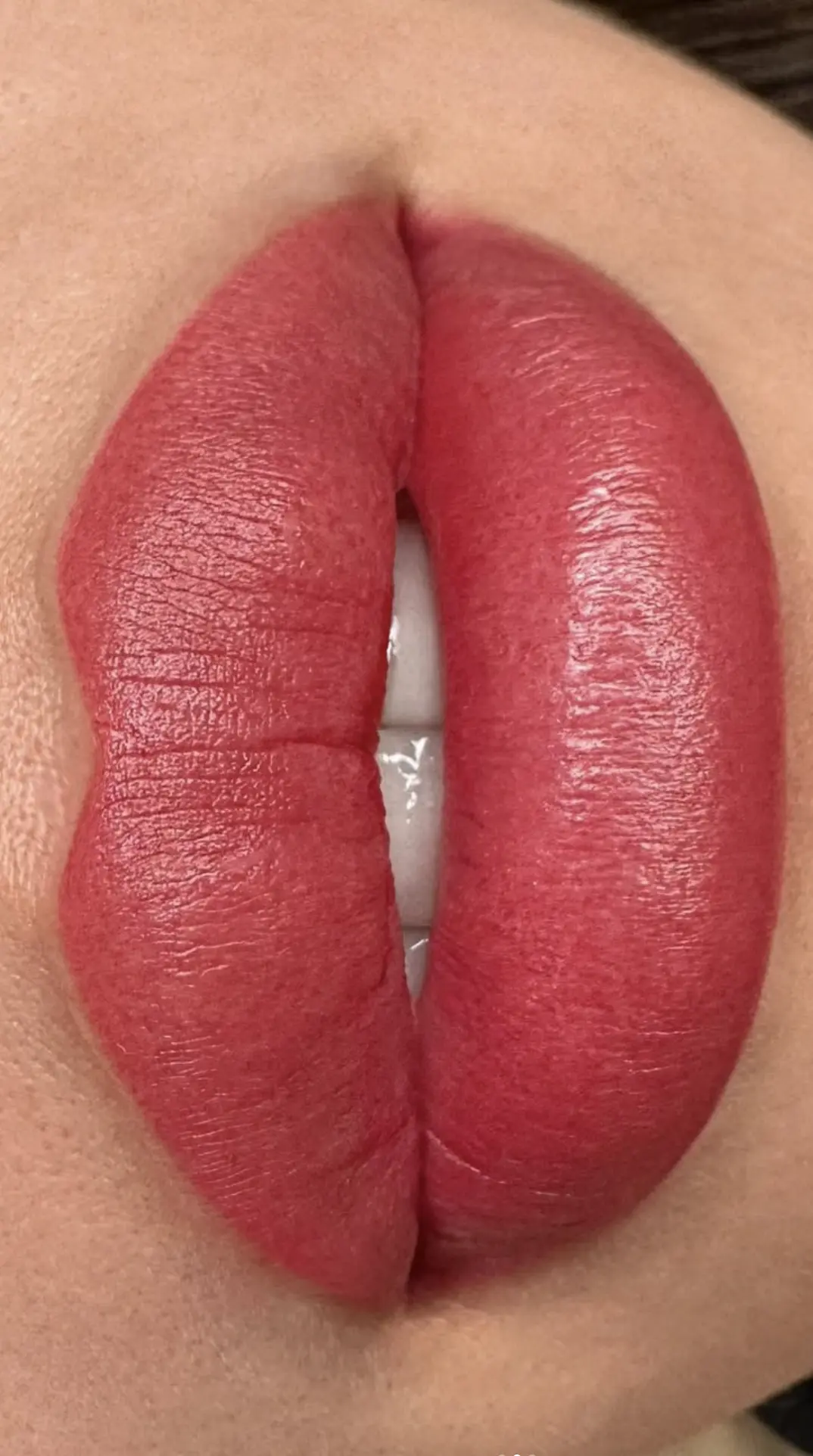
Elevate Your Head
To reduce swelling and heal faster, you need to sleep with your head elevated. Propping yourself up with extra pillows will help reduce swelling and allow fluid to drain from the lips. It also reduces pressure on the lip skin which is super sensitive after a cosmetic tattoo. Elevation is especially helpful in the first few days post procedure when you need to be careful not to put any pressure or friction on the area. Elevating your head will also prevent irritation from oils or dirt that can affect the healing and the outcome of your lip blush tattoo.
Don’t Sleep on Your Side or Stomach
Sleeping on your side or stomach will cause friction and pressure on your lips which can lead to complications like pigment migration, irritation and scabbing. These sleeping positions can also damage the delicate mucous membrane of the lips and delay skin regeneration or affect pigment retention. Plus side sleeping can disrupt the delicate balance of hydration needed for the healing process and leave your lips under strain. Avoid sleeping in these positions for at least a week after your lip blush treatment to ensure proper healing and integrity of your cosmetic tattoo.
Don’t Touch Your Face
Avoid touching your lips or face while sleeping. Touching your lips can introduce bacteria, dirt or oils which can hinder the healing process and affect the outcome of your lip tattoo. Don’t wipe or scratch your lips as this can disrupt the healing of the wounds and lead to poor color retention or even pigment loss. Instead use a clean tissue or cotton swab to gently dab any excess balm or ointment on your lips if needed especially if your lips get dry while sleeping. By not touching the lip area you reduce the risk of complications that can affect your lip permanent makeup results.
Apply a Healing Balm
Before bed apply a thin layer of healing ointment or aftercare balm recommended by your cosmetic tattooing artist. A healing balm locks in moisture, reduces the risk of dry skin or dry healing tissue and protects your lips from external irritants like spicy food or acidic food that can disrupt the healing process. The balm also provides an extra layer of protection from the sun which is key as sun exposure can affect pigment retention. This layer of ointment keeps your lips hydrated, moist and ready for the next day of recovery, speeding up the healing process and helping you achieve the desired lip colour in your lip blush tattoo.
What to Avoid While Sleeping After a Lip Tattoo
- No Sleeping on Your Side or Stomach: As mentioned above side and stomach sleeping can damage the tattoo.
- Don’t Share a Bed: If possible don’t share a bed with pets or a partner who may touch your face in their sleep.
- No Heavy, Fragranced Skincare: Harsh products can irritate the lip area. Use only mild, fragrance free skincare during the healing process.
- No Hot Compresses: Heat can soften scabs and make them fall off too soon.
- No Alcoholic Drinks and Blood Thinners: These can cause bleeding and slow down the healing process.
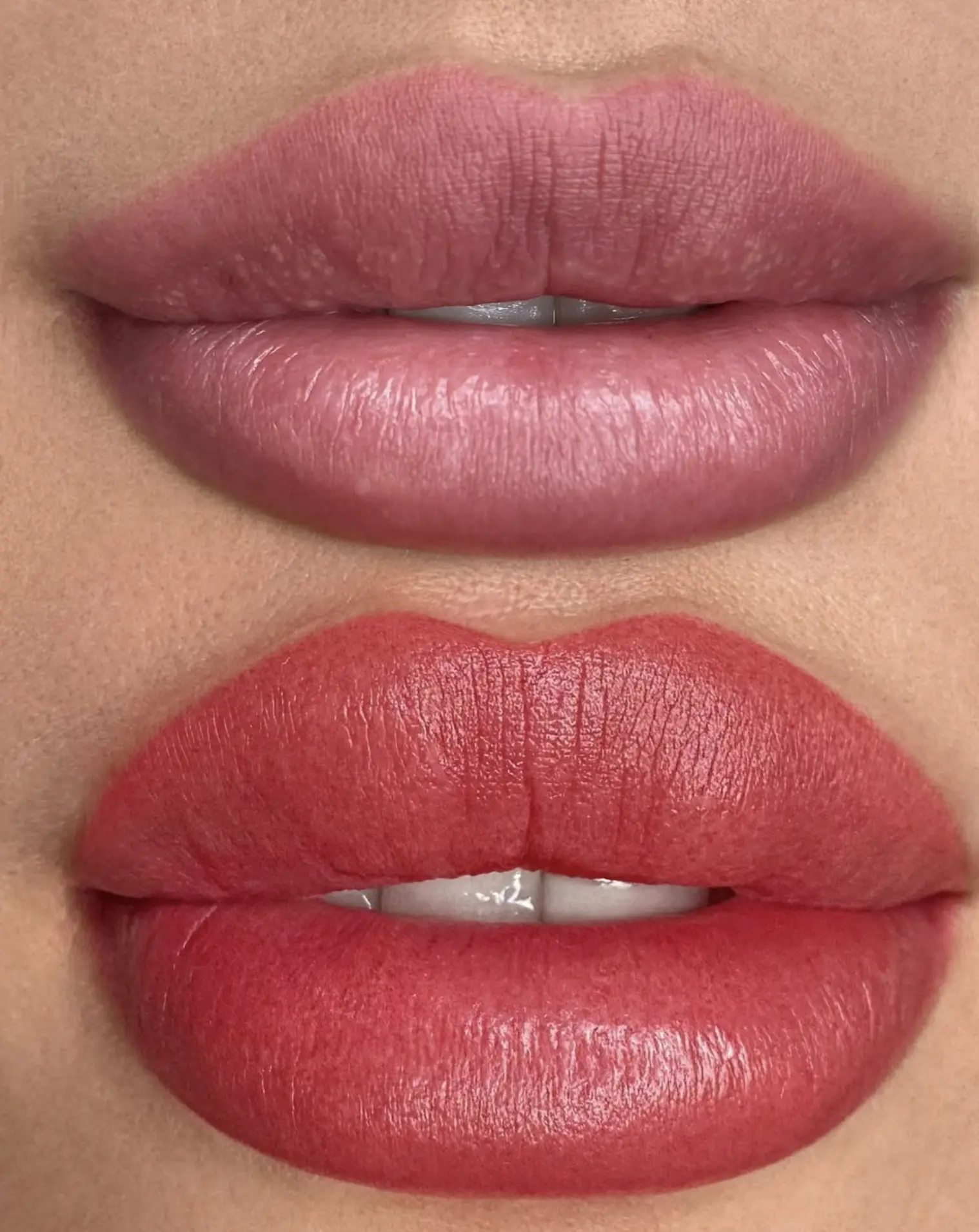
How Long Do You Need to Follow These Sleeping Guidelines?
7-14 days is the critical healing period but it’s best to follow safe sleeping habits for the first 10 days after the procedure. Full healing can take up to 30 days and during this time it’s important to continue good sleeping habits to keep the pigment vibrant.
Signs of Healing and What to Expect
- Days 1-3: Swelling and tenderness is normal. Lips feel tight and colour is more intense than expected.
- Days 4-7: Scabbing starts. You may experience dryness, skin irritation or flaking as the skin heals.
- Days 8-14: Scabs fall off naturally and colour appears lighter.
- Days 15-30: Lips continue to heal and colour settles into its final shade.
How to Handle Discomfort While Sleeping
If you’re feeling uncomfortable here’s what you can do:
- Cold Compress (Not Hot!): Apply a cold compress (not directly on the lips) before bed to reduce swelling.
- Over-the-Counter Pain Relievers: Take paracetamol or ibuprofen (if advised by your artist) for mild pain or inflammation.
- Drink Lots of Water: Hydration helps skin heal from the inside out so drink plenty throughout the day.
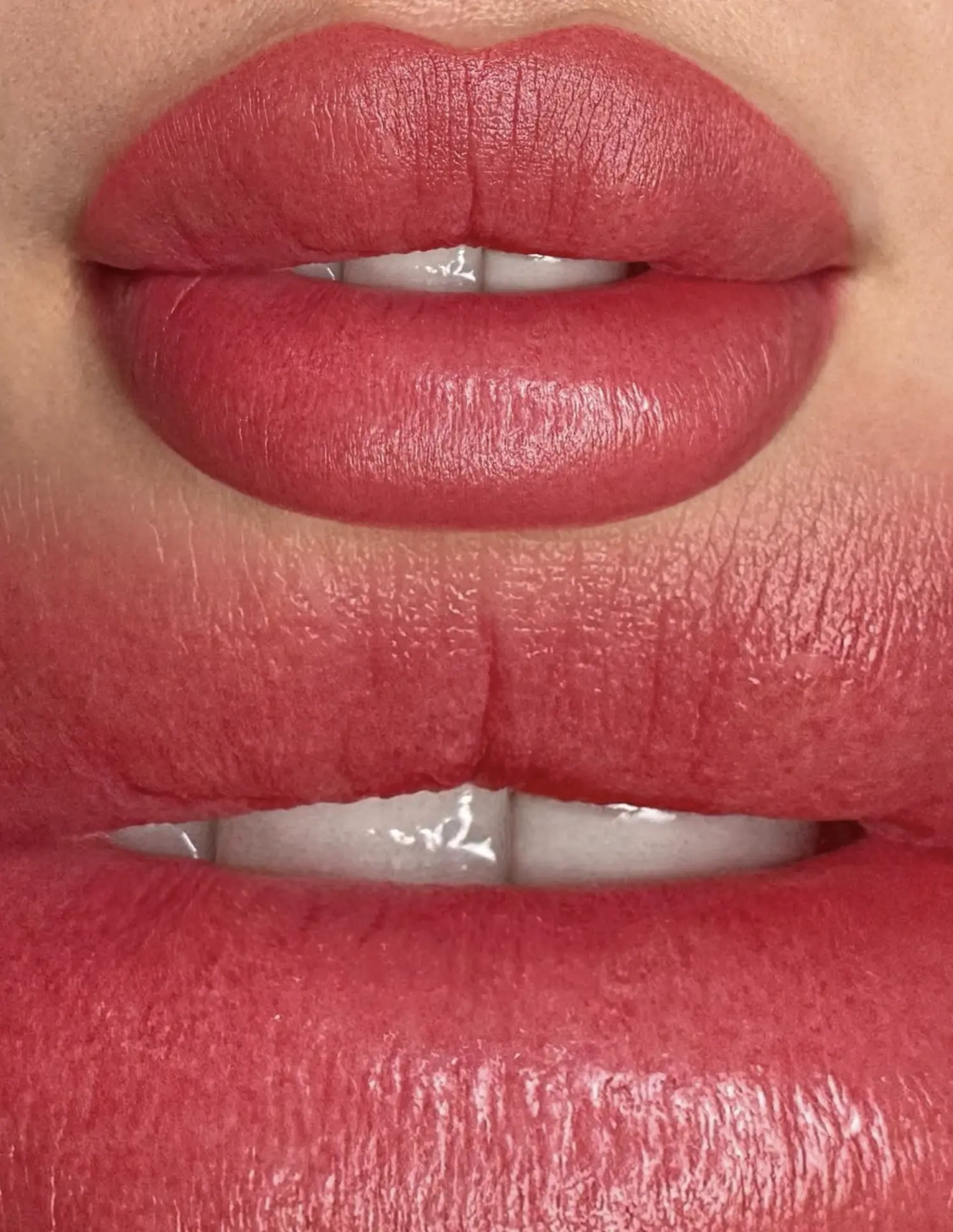
When to Reach Out to Your Artist or Doctor
Most people are mildly uncomfortable but there are some signs you shouldn’t ignore. Reach out to your artist or doctor if you notice:
- Excessive Swelling: Swelling increases after 3-4 days.
- Severe Pain: Pain gets worse or doesn’t get better.
- Infection Signs: Redness, pus or a bad smell may be signs of infection.
- Allergic Reactions: If you’re allergic to the pigment or healing balm get medical help now.
Conclusion
Sleeping after a lip tattoo requires attention to detail to get the best results. By following these simple tips in this guide—sleeping on your back, elevating your head and using clean pillowcases—you’ll prevent pigment loss, scarring and infection. Good sleep hygiene means a smoother healing process and you’ll wake up with beautiful lips.
If you’re unsure about any part of the healing process, don’t hesitate to consult your cosmetic tattoo artist for personalized advice.
FAQ
How long should I sleep on my back after a lip tattoo?
Sleep on your back for at least 5-7 days post-procedure to avoid pressure on your lips, prevent pigment migration and proper healing.
Can I use any lip balm after my lip tattoo?
Use a healing balm or aftercare product recommended by your tattoo artist. These products are designed to protect and moisturize your lips and do not contain ingredients like glycolic acid, salicylic acids or alpha hydroxy acids which can be too harsh for healing lips.
Can I eat spicy or acidic foods after a lip tattoo?
Avoid spicy and acidic foods during the initial healing stages as they can irritate your tattooed lips and slow down the healing process.
Should I avoid sun exposure after my lip tattoo?
Yes, direct sun exposure can damage the healing lip tattoo and cause the pigments to fade. Make sure to apply sunscreen after the healing process and avoid sun exposure during the first few days post-treatment.
Can I apply thick layer of petroleum jelly to my lips after the procedure?
Although it might seem like a good idea, petroleum jelly is not recommended for lip tattoo aftercare as it can clog pores and impede the skin’s natural healing process.